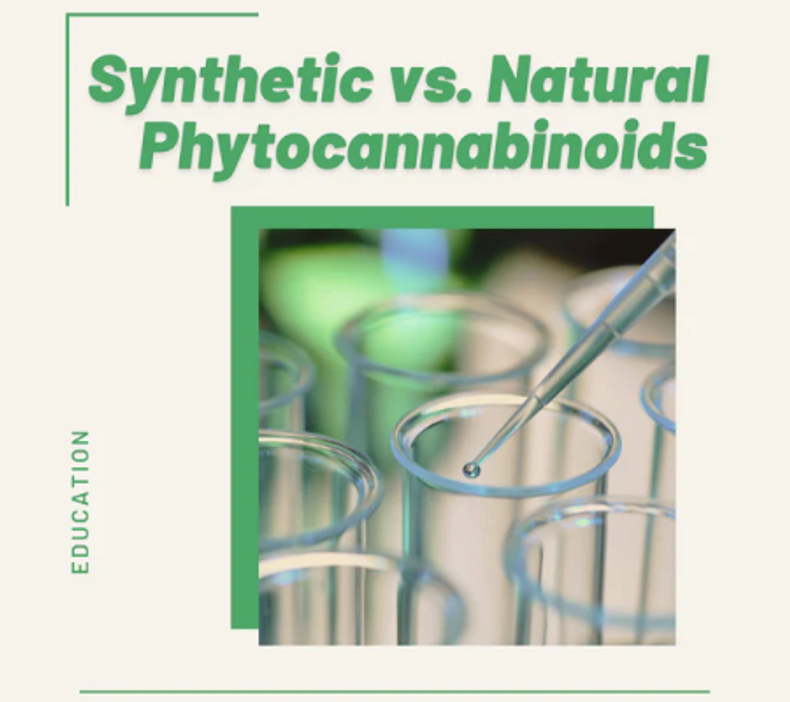
Synthetic vs Natural Phytocannabinoids
In the world of Cannabis, many consumers and researchers have been intrigued by the therapeutic benefits that synthetic cannabinoids have to offer. It’s a complicated question as to whether these synthetic cannabinoids offer same therapeutic benefits as natural phytocannabinoids found in plants. This blog post will provide an analysis of the pros and cons of both synthetic and natural phytocannabinoids. Along with some insight into their efficacy in terms of therapeutic benefits.
Synthetic Cannabinoids
Synthetic Cannabinoids are chemical compounds created in a laboratory setting. They are designed to mimic the effects of THC and CBD found in plant-based cannabis products. These cannabinoid molecules can be tailored to target specific receptors in the body. Which allows for more precise targeting than what is possible with natural phytocannabinoids. Additionally, due to their lab derived nature, synthetic cannabinoids tend to be much more potent. As a result, they may be able to provide faster relief from certain conditions than natural phytocannabinoids can.
On the other hand, there are some drawbacks associated with using synthetic cannabinoids as well. Since they are artificially created, it is not always possible to replicate the exact chemical makeup of a naturally occurring plant-based cannabinoid molecule. So, while they may be effective at treating certain conditions. They could also carry unexpected or unwanted side effects that are not present when using natural products derived from plants.
Overall, since these molecules are developed synthetically rather than organically, there is no guarantee that they will remain consistent over time. Which could lead to unreliable results for users who rely on them for therapeutic use.
Natural Phytocannabinoids
The other option for consumers looking for therapeutic relief is to use products derived from plant sources instead of lab-made. Natural phytocannabinoids (THC and CBD) come directly from plants like hemp or marijuana. Phytocannabinoids have been used therapeutically for centuries due their known medicinal properties and ability to interact with our body’s endocannabinoid system. Unlike their synthetic counterparts, natural phytocannabinoid molecules have been around long enough that scientists know exactly what they look like and how they interact with our bodies. Users can expect reliable results when it comes to treating various ailments without any unwanted side effects or surprises.
However, one potential downside with natural phytocannabinoids is that they tend to be less potent than synthetic cannabinoids. This means it may take longer for users to experience relief from their symptoms. Additionally, since most states do not yet allow recreational cannabis use or medical dispensaries within their borders yet (aside from those containing only CBD), access may be difficult without going through legal channels first. It may prevent some people from being able to access them even if it’s something they would otherwise benefit from greatly.
Conclusion
In conclusion, both synthetic and natural phytocannabinoid molecules offer unique advantages and drawbacks depending on your needs as a consumer. Ultimately it comes down to personal preference as well as access (in some cases) when trying to determine which form you prefer best. Both options provide different levels of potency and reliability depending on what you’re looking for in terms of treatment outcomes. Whatever your decision, make sure you do thorough research before jumping into anything too quickly. Knowledge truly is power!

